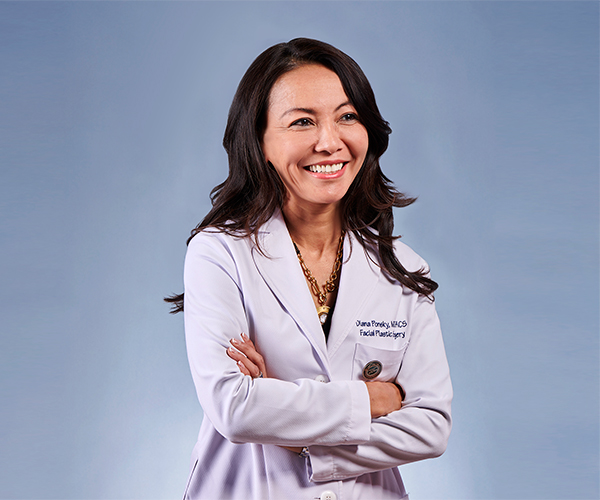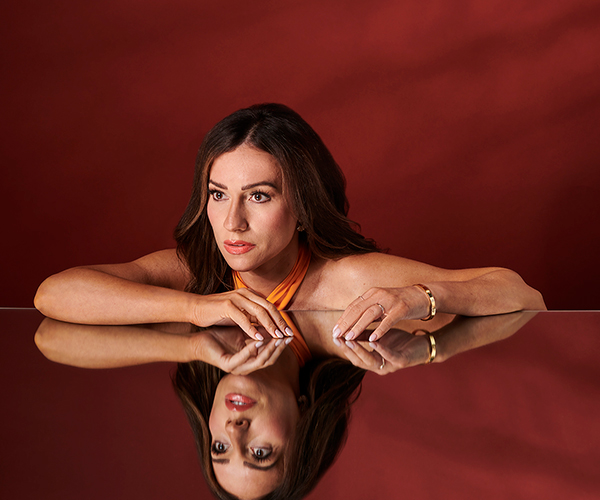Samantha Vogel tears up when she talks about the worst time of her life. She was a junior at Lakewood High School when a dark clinical depression enveloped her, sending her mood and grades spiraling downward.
In the midst of the depression, those plummeting grades nearly destroyed her dream of going to college. Samantha wanted to give up. After all, in her mind, everyone around her had already given up on her.
Everyone but Dr. Ellen Rome, head of adolescent medicine and associate chief of staff at The Cleveland Clinic Foundation.
"Part of the reason that I'm where I am today is because of her," says Samantha, now a 19-year-old full-time student at Tri-C. "I view her like a guardian angel because at every low point, every time I felt like all hope was gone, she was there to lift me back up."
It's a strong testimonial for a doctor who - as a nationally recognized specialist in adolescent medicine - spends her days dealing with sex, drugs, rock 'n' roll, and the harsh realities that can quickly derail a teen's life.
Each day, Rome walks the delicate tightrope between teen and parent, building bridges that can break easily by the sheer weight of raging hormones and risk-taking behavior.
Rome learned early that as a doctor who works hands-on with teenagers, you can't just be available from nine-to-five.
She tried something like that once during her fellowship days. At 3 a.m. the young caller said, "I can't find the condom, what should I do?"
"Take a cold shower and call me tomorrow," she said.
"No, you don't understand," the teen said. "It's after."
Today, she can laugh about that particular call. But she still takes calls from teens at all hours. With the issues facing teens, she admits that it's tough out there.
"The situations that kill kids are exactly that - situations," she says. "Heart disease and high blood pressure and diabetes might have their roots in childhood and adolescence, but they're not killing kids until way later. What's killing kids now occurs by poor choices and bad timing."
The best advice she has for parents is first to enfold children in positive feedback.
"If you can get a kid thinking that they're the best thing since sliced bread, and believing in themselves, that alone is protective against a lot of risk," she advises.
Secondly, she says that it does take a village to raise kids. But today's lifestyle - including the move to patios and decks at the rear of homes instead of front porches - has isolated teens at a critical point in their lives.
"You want to have cheerleaders and positive role models in every child's life," she says. "Never underestimate the power of a caring adult."
Her role models growing up were her parents, especially her father, Dr. Leonard Rome, a beloved pediatrician in the Heights area until his death in January 1997.
"The apple didn't fall too far from the tree," says Dr. Michael Macknin, chairman of pediatrics at The Clinic. "He was a great pediatrician and a wonderful human being. She is following in his footsteps and contributing so much to pediatrics. She has an extraordinary expertise in adolescent medicine. Bless her."
Today, Rome is a strong role model for others. One of her former patients, Katherine Griswold, is a fourth-year medical student at Northwestern University who hopes to go into pediatrics. "She is the kind of physician that I hope to be one day," Katie says. "She is intelligent, engaging, provides excellent advice and really puts her patients first."
Rome still does general pediatric well-care, patients from newborn up, including a few in their early 20s who can't quite let go. She sub-specializes in some of the biggest issues facing teens today: eating and menstrual disorders, obesity and the challenges of being an elite athlete.
She keeps her life in balance with Fridays off to spend more time with her two young children. But, she confesses, Friday is also usually the day you'll find her writing a chapter for a medical textbook, speaking to a group of high school students or teaching a class at Case Western Reserve University.
In fact, Rome was instrumental in starting the nation's only track for adolescent health at Case's School of Public Health.
"I think one thing she does differently is she really listens," says Samantha. "If there is a problem, she doesn't go behind your back.
"She was the one person who always said, "You're going to do it. You're going to go away to school if you want to, you can do it, and I know you're going to succeed,' " says Samantha, who plans to transfer to Florida to study international business and marine biology. "I'd see her until I was 40 if I could."- Heide Aungst



